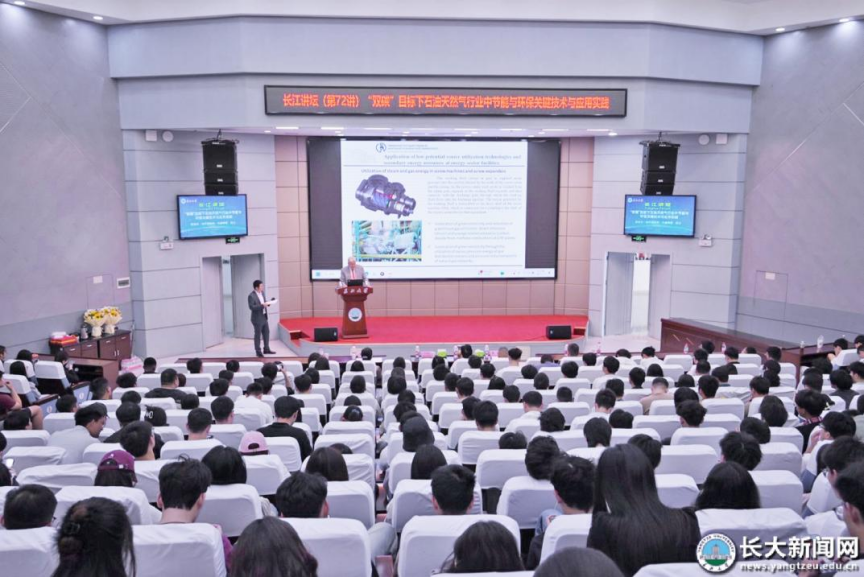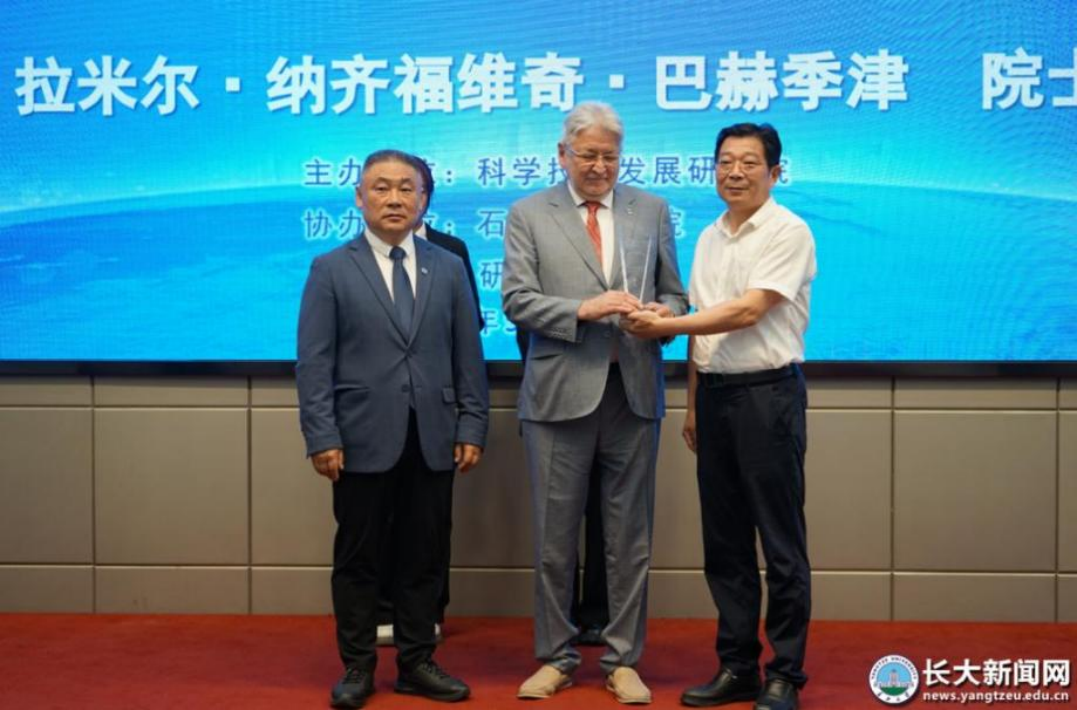On the morning of May 12, Academician Bakhtizin Ramil Nazifovich, member of the Russian Federation Academy of Natural Sciences and the Academy of Sciences of the Republic of Bashkortostan, delivered an academic lecture titled “Key Technologies and Application Practices for Energy Conservation and Environmental Protection in the Oil and Gas Industry under the Dual Carbon Goals” at the 72nd Yangtze Forum at the Academic Lecture Hall of the Wuhan campus.

Vice President Jiang Houshun, the Dean of the School of Petroleum Engineering, along with faculty and students from relevant disciplines, attended the academic report.
Focusing on China's “Dual Carbon” policy objectives, Academician Bakhtizin Ramil Nazifovich delivered a comprehensive analysis of global energy transition trends, detailing critical technological advancements in energy-saving technologies, efficient resource utilization, and environmental protection within the oil and gas industry. Integrating practical cases with scientific research outcomes, the presentation highlighted his team’s latest breakthroughs in developing resource-efficient technologies and optimizing production processes.
Academician Bakhtizin Ramil Nazifovich elaborated on his research team’s key directions, including Carbon Capture and Utilization (CCU) technologies, innovative approaches to low-temperature pyrolysis of heavy oil residues, carbon polygon zonal monitoring systems, novel self-healing corrosion-resistant materials, and dry solvent-based emergency environmental adsorbents.

The groundbreaking research achievements below drew extensive attention from faculty and students:
“Low-temperature plasma chemical processing of heavy oil enables light fuel extraction from high-viscosity petroleum products, enhancing economic efficiency.”
“Helical expansion generators effectively recover low-grade heat sources to generate green electricity.”
“Carbon polygon zonal monitoring systems facilitate regional carbon emission data collection and analysis, providing technical support for effective carbon sink management.”
“Asmol™ anti-corrosion coating materials with unique chemical self-healing properties significantly reduce corrosion damage in long-term oil/gas equipment and pipeline operations.”
During the Q&A session, faculty and students engaged in lively discussions on the application potential of emerging technologies highlighted in the report, raising critical questions such as:
“How do novel materials enhance equipment durability?”
“How can economic viability be balanced with green energy development in industrial practices?”
Academician Bakhtizin Ramil Nazifovich methodically addressed each query and provided strategic recommendations for China’s technological needs in advancing the green transformation of oil and gas industry.

After the insightful lecture, Vice President Jiang Houshun conferred the “Yangtze Forum” commemorative cup upon Academician Bakhtizin Ramil Nazifovich, while student representatives presented flowers in recognition of his academic contributions.